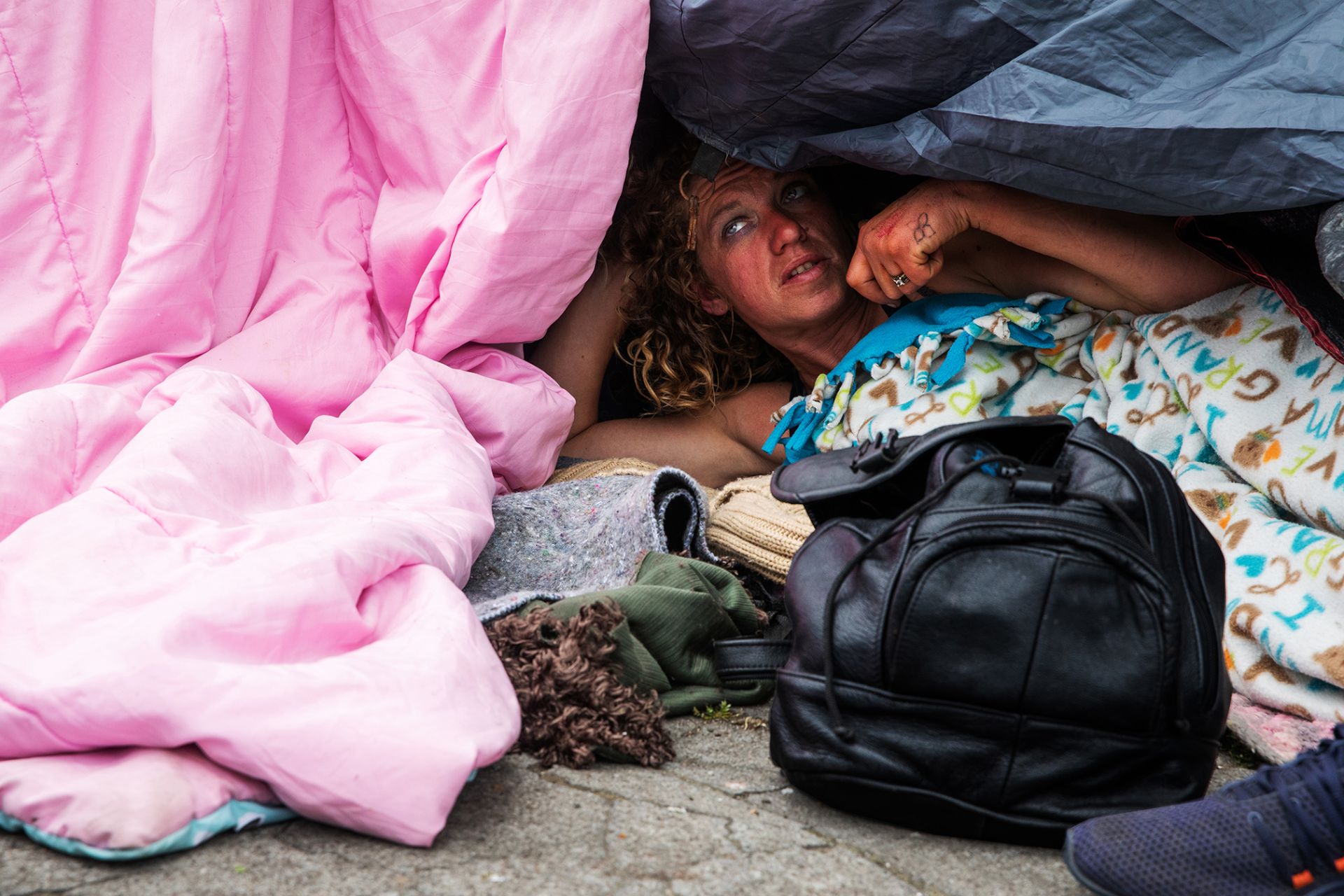Listen to this story
To some residents, tourists and conservative pundits, Portland, Oregon, feels like a post-apocalyptic wasteland. Sprawling tent encampments blight the city. Panhandlers harangue restaurant patrons. Trash and human excrement line the sidewalks in newly dodgy neighborhoods where drug users shoot heroin and smoke fentanyl out in the open.
This isn’t the City of Roses that flourished in the aughts. Portland was once known mostly as a progressive Eden of bespoke coffee shops, vegan bakeries, farm-to-table restaurants and quirky hipsters aptly caricatured in the Emmy-nominated comedy “Portlandia.” But over the past three years, the murder rate has skyrocketed and the short-staffed police department’s response to entire categories of crime, from DUIs to burglaries, has plummeted. The court system is so overburdened that Mike Schmidt, the district attorney of Multnomah County, which includes Portland, publishes a list of cases that judges now routinely dismiss, including property crimes and human trafficking, because there aren’t enough public defenders.
On a recent walk near his office, Schmidt encountered five different people openly smoking hard drugs from a piece of foil or a glass pipe. “Drug use is visible on the streets in ways we’ve never seen before,” he told me. “It used to be underground.”
Schmidt was elected in May 2020, promising to reform the criminal justice system by making it fairer and more effective. The COVID-19 pandemic was just beginning to upend the city, though, and the resulting economic crisis exacerbated already soaring housing costs and fueled increases in opioid addiction and homelessness. Meanwhile, antifa activists and Proud Boy agitators co-opted the racial justice protests that began that summer, demoralizing a Portland Police Bureau that has seen its rank and file leave in droves. Create a free account to continue reading Already a New Lines member? Log in here Create an account to access exclusive content.



